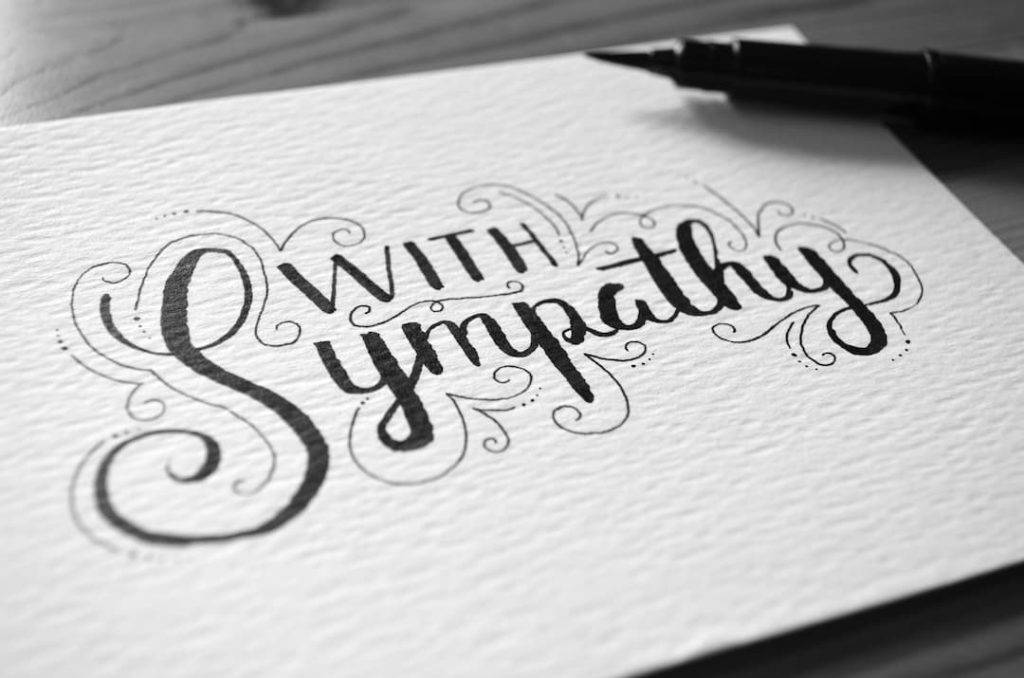When someone passes away and their family are left behind, they’re sure to need some support. Not everyone processes grief in the same way, so it’s good to know a few different ways that you can support a grieving family.
After Someone Dies
The first few day after someone dies can be a rollercoaster of emotions. Some people may react strongly, feeling a lot of deep upset and big emotions. Whereas others may be in shock and seem to have very little reaction to the death. No matter where someone appears to be on this spectrum, it’s important to show them support.
As soon as you hear that someone has died, you should make contact with the family. You can do this by sending them a message, phoning them or making a visit if it’s appropriate. Many people still follow the tradition of sending a hand-written Deepest Sympathies card in these difficult times. Which ever way you do it, make sure that they know you are there to support them.

How To Support Someone Who Is Grieving
Most of the time, people who are grieving need a shoulder to lean on and a listening ear. Allow them to share their feelings without judgement. Don’t feel as though you have to say or do anything to take their pain away. This could place them under unnecessary pressure. When someone is grieving, they need compassion, support and the ability to talk. It will take time for the pain to ease.

Many people who have lost a loved one will struggle to keep up with their normal lifestyle. You could help them by offering to do some household chores or making a meal for them. Remember to listen to their needs. If they ask you to give them some space, you should do so.
What Not To Do
When supporting someone who is grieving, it’s important to be mindful with your words. Sometimes things come out sounding a lot worse than you intended. Avoid sharing experience of your own grief, now is not the time. You also need to be careful not to make any insensitive comments. People who have lost their loved ones need time to feel sadness and grief. Telling them that there’s ‘plenty more fish in the sea’ or ‘lots to be thankful for’ can feel invalidating and hurtful.
When People Might Need Additional Support
Not everyone is able to handle their grief well. If you feel that your loved one is being significantly impacted by the loss of their loved one, you may want to refer them to a professional grief counsellor.
Signs that someone isn’t coping with grief could be:
- Low mood or depression that prevents them from caring for themselves or their dependents
- Inability to perform at work, school or hobbies
- Abuse of alcohol or drugs
- Self-harming
- Suicidal thoughts
If you notice these and don’t see any signs of improvement a few weeks after the death, make sure that they know where to turn for support. There are plenty of online resources that can help the bereaved, and talking therapies are available on the NHS with a referral from a GP. An urgent GP appointment can be scheduled by phoning 111 if you know that they need help quickly. If you think that someone is in immediate danger as a result of their grief, call 999 or take them to A&E as soon as possible.
For Support After Someone Dies, Give Our Funeral Directors A Call
As a long-established funeral director, we have experience with speaking to those who are grieving. Our team can offer support. We provide funeral plans and additional guidance to ensure that those who are grieving can have peace of mind that the formal arrangements are in hand.


